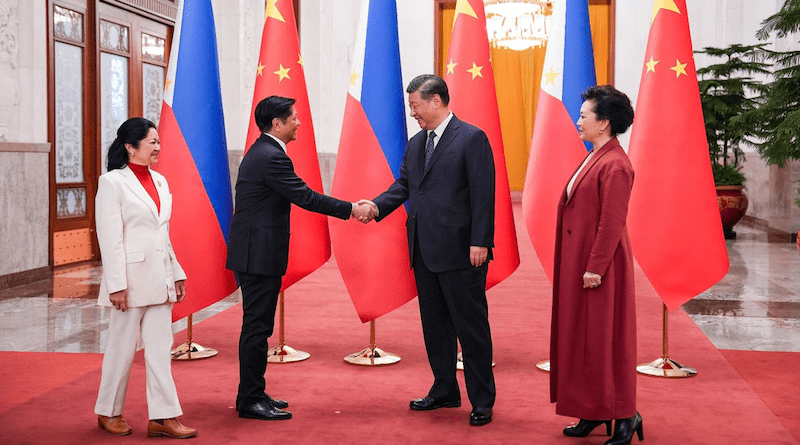De-Escalation Of Philippines-China Tensions In South China Sea: Building Block For China-ASEAN Blue Economy Cooperation – OpEd
China and members of the Association of Southeast Asian Nations (ASEAN) can pursue common development in the area of blue economy, especially in the South China Sea. However, escalating tensions between China and the Philippines in the South China Sea can undermine existing efforts to realize China-ASEAN blue economy cooperation.
It is therefore an urgent task not only of the Philippines and China but also of other ASEAN countries to contribute to de-escalation of Philippines-China tensions in the South China Sea. Without the de-escalation, China-ASEAN blue economy cooperation in the South China Sea under the framework of Regional Comprehensive Economic Partnership (RCEP) will be difficult to fully achieve.
The 1982 United Nations Convention on the Law of the Sea (UNLCOS) provides many important provisions for coastal states to peacefully settle maritime disputes in order to promote cooperation and avoid violent conflicts at sea. UNCLOS mandates all parties to maritime disputes to come out with a final delimitation agreement to encourage cooperation and avoid violent conflict.
But pending a peaceful settlement through a final delimitation agreement, UNCLOS requires coastal states in conflicts to make every effort to enter into a provisional arrangement to promote development cooperation of practical nature without prejudice to existing national claims. Every effort is a duty to cooperate in good faith. UNCLOS urges all parties to take a conciliatory approach and to deliberately avoid hostile actions in order to prevent unintended violent encounters at sea. When undertaking unilateral activities in disputed areas, UNCLOS obligates states to take actions that entail cooperation, consultation, and most importantly, prior notification.
According to UNCLOS, there are at least three types of provisional arrangements in disputed areas that can facilitate the development of a blue economy in the South China Sea: 1) Development Cooperation Arrangements; 2) Provisional Boundary Agreement; and, 3) Mutual Restraint Arrangements.
Development Cooperation Arrangements can be in the form of joint fishery management, common development of hydrocarbon resources, marine environmental research, marine environmental protection, and the like. It is in this area where states can pursue blue development diplomacy in order to transform the South China Sea from a sea of conflict to a sea of peace, friendship and cooperation. Development cooperation is the primordial goal of the China-ASEAN Declaration on the Conduct of Parties in the South China Sea (DOC) and the ongoing negotiation for the conclusion of the Code of Conduct (COC).
Provisional boundary agreement, on the other hand, is viewed to be an alternative option to final maritime delimitation. It aims to pursue cooperation of pragmatic cooperation to fulfill the mandate of UNCLOS for all parties to exercise their duty to cooperate, which the DOC and the COC aim to achieve.
Finally, a mutual restraint arrangement obligates parties to UNCLOS to mutually exercise self-restraint in the conduct of harmful and offensive unilateral activities that hamper cooperation and jeopardize the reaching of a final agreement. Coupled with obligation to exercise mutual self-restraint is the application of the principle of due regard, which requires states to respect the inherent rights and legitimate national positions of other states on maritime issues. Without self-restraint and due regard, it will be cumbersome to promote development cooperation and a boundary agreement whether in the final or provisionary forms.
In short, de-escalation of Philippines-China tensions in the South China Sea is imperative to achieve China-ASEAN blue economy cooperation under the RCEP framework. Closer and friendlier relations between the Philippines and China are important building blocks toward China-ASEAN blue economy partnership.
Speech delivered at the International Symposium on China-ASEAN Blue Economy Cooperation organized by the China Institute for Reform and Development held in Jakarta, Indonesia on 14 December 2023.

